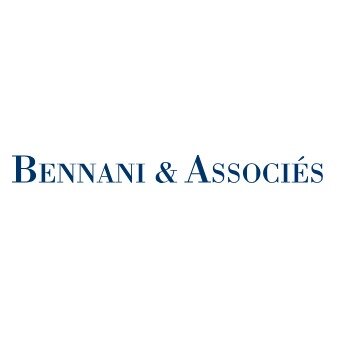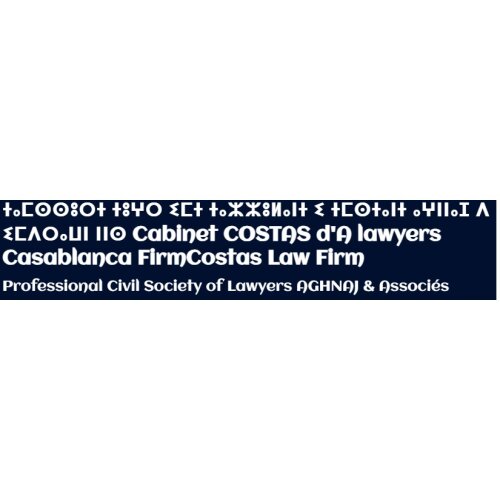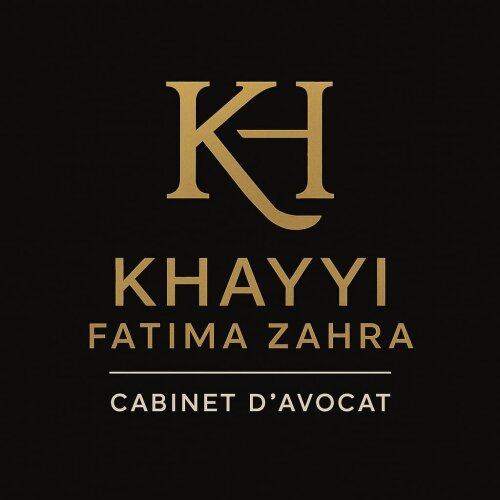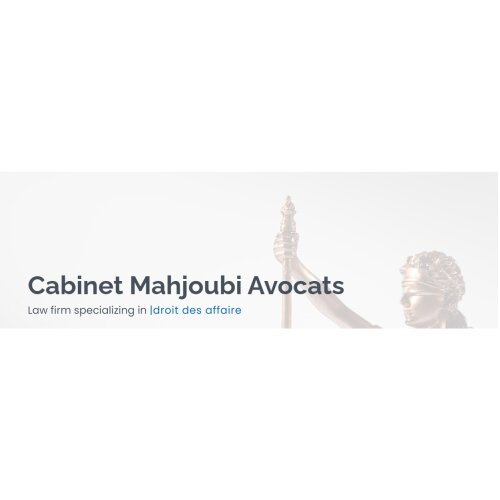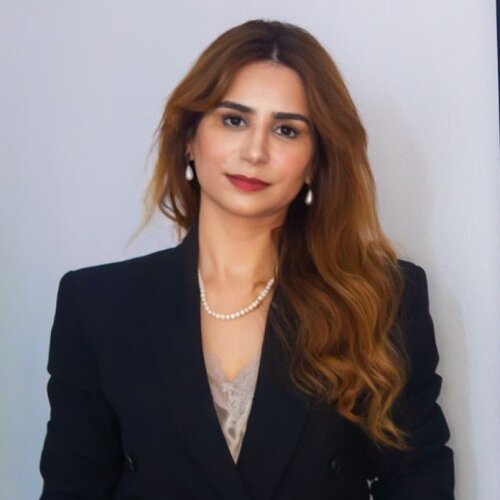Best Business Lawyers in Morocco
Share your needs with us, get contacted by law firms.
Free. Takes 2 min.
Or refine your search by selecting a city:
List of the best lawyers in Morocco
Morocco Business Legal Questions answered by Lawyers
Browse our 1 legal question about Business in Morocco and read the lawyer answers, or ask your own questions for free.
- I am a tourist and I have been scammed by my accountant in Morroco...my only proof left are the massages which we exchange,are WhatsApp massages considering an evidence?
- My accountant asked me 12000 euros to open a company, during the whole process he played a lot with me giving me false information, one day I fed up with him so I changed accountant when I was about to transfer my company, my new accountant, said my company is... Read more →
-
Lawyer answer by AKT ADVISOR LLP
Hello Sir, Sorry to hear that. Yes you can use all proof to show that he scam you. If you need reach our firm to advise you on that.
Read full answer
About Business Law in Morocco
Morocco, strategically located at the crossroads of Europe and Africa, offers a dynamic environment for business development. The country's business laws are rooted in a blend of French civil law and Islamic law, providing a unique legal framework that governs business activities. Key sectors such as agriculture, mining, tourism, and manufacturing play a significant role in Morocco's economy. In recent years, Morocco has made significant strides in improving its business climate, encouraging both domestic and international investments through reforms and incentives.
Why You May Need a Lawyer
Engaging a lawyer may be crucial in various business-related situations in Morocco:
- Starting a Business: Guidance on business structure, registration, and compliance with local regulations.
- Contract Drafting and Review: Ensure that agreements are legally sound and protect your interests.
- Intellectual Property: Protecting trademarks, patents, and copyrights crucial for preserving business assets.
- Dispute Resolution: Legal representation in conflicts with partners, clients, or suppliers.
- Regulatory Compliance: Navigating industry-specific regulations can be complex and requires expert advice.
Local Laws Overview
Understanding key aspects of Moroccan business law is essential for operating successfully:
- Company Law: The primary legislation is the Moroccan Commercial Code, which outlines company formation, governance, and dissolution.
- Treaties and International Agreements: Morocco is part of several international trade agreements, impacting businesses that engage in export and import activities.
- Labor Law: Employment contracts, worker rights, and regulatory compliances are governed by specific labor laws.
- Taxation: Morocco’s taxation system includes corporate tax, VAT, and other specific business-related taxes.
Frequently Asked Questions
What are the types of business entities I can establish in Morocco?
The most common types of business entities include Société A Responsabilité Limitée (SARL), Société Anonyme (SA), and Sole Proprietorship.
How do I register a business in Morocco?
Business registration involves several steps including obtaining a trading certificate, registering with the tax authorities, and enrolling with the national social security fund.
What are the foreign investment policies in Morocco?
Foreign investors are encouraged and are subject to the same regulations as local investors, with some additional incentives in certain sectors and regions.
Do I need special licenses to operate a business in Morocco?
This depends on the type of business. Some industries require special permits or licenses from relevant authorities.
How can I protect my intellectual property in Morocco?
Protection is secured through registration with the Moroccan Office of Industrial and Commercial Property (OMPIC).
What are the common legal challenges businesses face in Morocco?
These may include regulatory changes, contract enforcement, and issues related to tax compliance.
Can a foreigner be a director of a Moroccan company?
Yes, foreigners can be appointed as directors of Moroccan companies, but specific requirements may apply.
How are commercial disputes resolved in Morocco?
Disputes can be resolved through litigation in commercial courts or through alternative dispute mechanisms like arbitration.
What is the tax rate for companies in Morocco?
The corporate tax rate varies depending on the company’s revenue but is generally around 30%. Other taxes like VAT may also apply.
Are there incentives for certain industries in Morocco?
Yes, sectors like renewable energy, tourism, and export-oriented industries often receive special incentives.
Additional Resources
Consider the following resources and organizations for further assistance:
- Moroccan Ministry of Industry: Provides information on industry regulations and incentives.
- Moroccan Investment Development Agency (MIDA): Offers guidance on investment opportunities and procedures.
- OMPIC: For intellectual property registration and protection.
- Chambers of Commerce: Useful for networking and gaining insights into local business practices.
Next Steps
If you find yourself in need of legal assistance in business issues in Morocco, consider the following steps:
- Identify Your Needs: Determine the specific legal areas where you require assistance, such as company formation or contract law.
- Seek Professional Help: Consult with local lawyers specializing in Moroccan business law for expert advice.
- Research and Plan: Utilize resources and guidance provided by relevant Moroccan agencies and institutions.
- Network: Engage with local business communities to gather first-hand insights and recommendations.
Lawzana helps you find the best lawyers and law firms in Morocco through a curated and pre-screened list of qualified legal professionals. Our platform offers rankings and detailed profiles of attorneys and law firms, allowing you to compare based on practice areas, including Business, experience, and client feedback.
Each profile includes a description of the firm's areas of practice, client reviews, team members and partners, year of establishment, spoken languages, office locations, contact information, social media presence, and any published articles or resources. Most firms on our platform speak English and are experienced in both local and international legal matters.
Get a quote from top-rated law firms in Morocco — quickly, securely, and without unnecessary hassle.
Disclaimer:
The information provided on this page is for general informational purposes only and does not constitute legal advice. While we strive to ensure the accuracy and relevance of the content, legal information may change over time, and interpretations of the law can vary. You should always consult with a qualified legal professional for advice specific to your situation.
We disclaim all liability for actions taken or not taken based on the content of this page. If you believe any information is incorrect or outdated, please contact us, and we will review and update it where appropriate.
Browse business law firms by service in Morocco
Morocco Attorneys in related practice areas.
Browse business law firms by city in Morocco
Refine your search by selecting a city.







